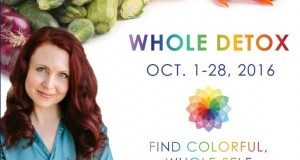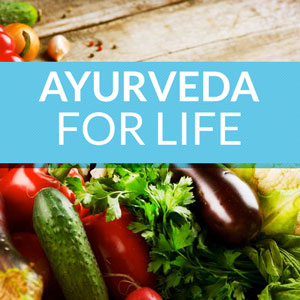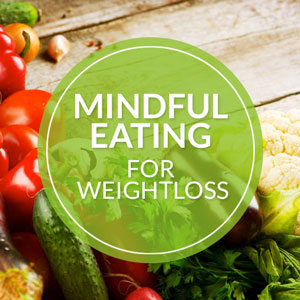Indigestion Guru Spills Her Secrets
Hello wellness warriors,
Today, I am very excited to to share something very special! A new friend of mine and an amazing ayurvedic practitioner, Dr Helen Thomas, shares some of her wisdom with us! Dr Helen studied with Deepak Chopra and Vasant Lad and now has a thriving practice in CA. She is the author of multiple book of health and ayurveda. Recently, she expanded her private practice to offer an online course called Colon Karma Cure. Isn’t it a cool name?! She calls herself and Indigestion Guru! I love it! The program offers weekly newsletter with tips and audio files with lectures on how to Cure Bad Colon Karma 🙂 or basically, how to make your belly happy and healthy.
We had so much to discuss in our interview that I broke it down in several parts. Mind Body Green published a big piece of the interview, Modern Hippie Mag will cover individualized diets and the effects of stress on digestion, and I kept Dr Helen’s view of Raw Food Movement, her advice on using spices, and a glimpse of her daily diet for Spinach and Yoga. Here we go:
Nadya: Ayurveda is heavy on using spices that are specific to body types. In ayurveda spices are used for flavor and their healing properties. There’s a movement of people that advise against the use of spices as it may stimulate overeating. Their reasoning is that spices make the food taste different from what the nature intended and we don’t taste the plain ingredients as a result it is easy to eat more than the body requires. They also say that in the ancient times when our ancestors were mainly gathering and hunting, that they didn’t use spices. What do you think is the right answer? Should one use spices?
Dr Helen: I can only answer from an Ayurvedic perspective. In Ayurveda, we believe that spices improve digestion by stimulating the production of enzymes and improving circulation. Adding a little bit of spice in your food is similar to taking the popular nowadays digestive enzymes.
Another important aspect of using spices in cooking is the understanding of food and emotion connection. Ayurveda considers an emotional component of eating to be very important. Food should smell good and taste good to fulfill an emotional need. If you don’t have time to cook and enjoy your meal, you are not cultivating an emotional satiation in relationship to your whole experience as being a human being. That’s why people eat on the go, while driving or walking, will never feel completely satisfied and will always crave more.
Spices can be used for taste but they have powerful healing properties and it is important to use them according to dosha. If you’re a Kapha type struggling with weight issues, than you need to use pungent, bitter, and astringent spices to stimulate metabolism. Spices that are sweet, sour and salty are contraindicated as they will lead to water retention and overeating. That’s just one example of why you have to use spices according to your body type.
Nadya: What do you think about a recent trend of juicing and raw foods? Is it healthy?
Dr Helen: Not all raw food is equal, some of it is easier to digest than other. If you include soaked grains, ground up soaked seeds and a little bit of nuts, then it should be okay. However, Vata types would not feel well after eating a raw salad made with coarse hard vegetables like broccoli or cauliflower. Some might even develop a stomachache. I think the raw foods movement is bringing a lot of good things to the table and everyone should try experimenting with making some raw dishes at home. The key is to add a little bit of healthy oils and grains even if it’s raw. But I do not recommend just plain hard raw vegetables for Vata types or people with a weak stomach.
Nadya: As an Ayurvedic doctor, do you live by what you preach? What do you usually eat on a day to day basis?
Dr Helen Thomas: Kitchari is my go-to breakfast. The recipe is very simple: ½ cup rice and ½ cup moong dal; boiled in water with a teaspoon of turmeric and a little salt. At lunch I usually have a grain-based dish like quinoa with veggies. For dinner, I can have chicken soup or fish. I also like boiled milk, dates, figs, almonds, and pine nuts when I need a boost of energy.
Nadya: For people who sign up for the Colon Karma Cure program, how long does it take for a sensitive stomach to heal and for digestion to become stronger if a person is following general Ayurvedic guidelines?
Dr Helen: About six weeks. We have many testimonials from people who have taken the Colon Karma Cure raving about the program and how it significantly improved their digestion.
The Colon Karma Cure is a wonderful program that offers a wealth of knowledge on Ayurveda and digestion. Dr Helen makes the sometimes confusing ancient ayurvedic wisdom accessible and easy to apply in your own kitchen.
Your turn to be interviewed! Please share your thoughts in the comment section below!
1. Do you use spices? How do you decide which ones to use?
2. Have you tried juicing and raw food? How did your belly react?
Would love to hear from you!
PS: If you want some help creating your Personal Wellness Vision and finding strategies that will work for you to reach it, check out my Services page and email me at nadyaand @ gmail dot com
PPS: We still have a few spots left for the India Adventure. Join me! It will be so much fun and it will change your life!!!
Related articles
- The Best Of Spinach and Yoga 2011 (spinachandyoga.com)
- Kelp Noodles with Edamame in a Creamy Butternut Squash Sauce (spinachandyoga.com)
- A Baked Apple A Day Keeps The Doctor Away (spinachandyoga.com)
- Kind Curried Cauliflower Soup (spinachandyoga.com)
- One Tip To Change Your Life (spinachandyoga.com)
- Culinary Spices & The Doshas! (vedahealth.wordpress.com)










